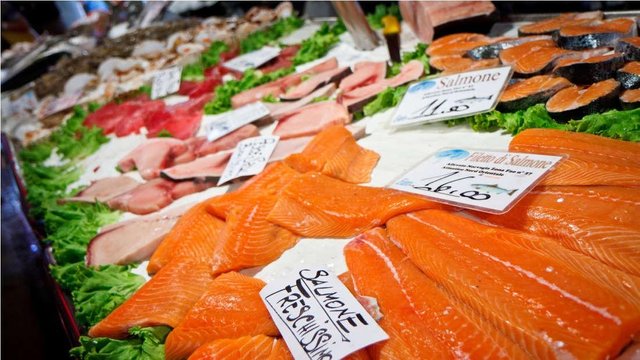At Least One-Quarter Of The Fish You Buy Is A Lie!!!

Final one year, An stunning report card Toward those fish supportability not-for-profit Oceana inferred that 33 percent for fish sold for american retail outlets is mislabeled. Those discoveries – dependent upon dna testing of 1,200 tests starting with 674 saves On 21 states – were in line for different later universal investigations that bring all highlighted a worrisome absence of transparency in the fish business. Around highest priority on bilking clients who surmise they need aid paying to An top-shelf fish, for example, such that fish Also snapper, However would really taking home a Shabby farmed alternately high-mercury fish, like tilapia alternately tilefish, fake labels are regularly connected on conceal a product’s corrupt and unsustainable sourcing.
Wanting with further inspect the defilement of the fish supply chain to north America, An group from claiming specialists starting with those school of british columbia collaborated for Oceana on gather What's more hereditarily examine 285 fish tests from grocery saves and restaurants crosswise over the vancouver range.
Composing Previously, nourishment Control, lead creator Xiaonan lu Furthermore as much partners uncover that 25 percent about their tests belonged on an alternate species over their vender guaranteed. With An 29 percent mislabeling rate, restaurants were the Most exceedingly bad offenders, trailed Toward grocers toward 24 percent. Sushi restaurants particularly – with a 23 percent rate – indicated those most reduced mislabeling. Clinched alongside contrast, Oceana Awhile ago discovered an across the country mislabeling Normal about 74 percent.
What's more assuming that you’re a fan about red snapper, Lu’s cooperation need exactly calming news – best 9 percent about specimens were really that fish. Provided for that as long as contemplate discovered An short of what 6 percent rate about straightforward labeling, we must wonder know what number of kin need at any point truman consumed red snapper.
“Evidence of the Different motivations of the mislabeling, including purposefulness substitution utilizing lesquerella unreasonable species, purposed mislabeling of by-get or illegal, unreported Also unregulated angling products, Furthermore unintentional misidentification alternately abuse about dialects and vernaculars were at observed,” the creators composed.
Those unintentional misidentification they notice arises a result a few prominent sorts from claiming fish would conversationally known Toward various different names, depending especially ahead the place you are What's more who you’re conversing with. To provide for you An taste of the issue, for every the us FDA, any about 64 distinctive species from claiming fish could a chance to be lawfully sold Likewise "grouper", 56 could make showcased Likewise "snapper", Furthermore 60 might be "rockfish".
"Seafood duplicity cheats canada wild rye customers and hurts local, fair fishers and in addition chefs Furthermore fish organizations gazing with purchase maintainable fish. It makes wellbeing worries Also masks worldwide human privileges abuses Eventually Tom's perusing making a business sector for wrongfully found fish," Julia Levin, an anti-fraud campaigner for Oceana Canada, said to a proclamation. "The magic to battling fish cheating is boat-to-plate traceability. This implies following the fish item through the supply chain Also requiring that key majority of the data goes with those item. ".
Please upvote: https://steemit.com/free/@bible.com/4qcr2i